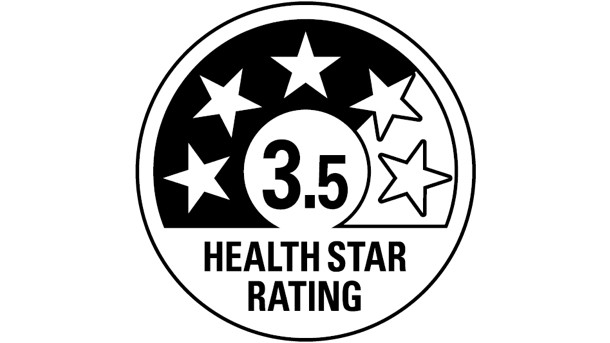Health Star Rating mandatory : The packaged food sector has fallen short of the government’s target for adopting the Health Star Rating system, prompting authorities to consider whether the scheme should now become mandatory.
More than a decade after its introduction, uptake has stalled at just 37 per cent — far below the government’s goal of 70 per cent.
Food ministers from Australia’s states and territories had previously warned that the labels would be made compulsory if the industry failed to reach the target by today’s deadline.
The government set highly achievable targets, yet the multibillion-dollar packaged food industry has still fallen far short,” said Associate Professor Alexandra Jones from The George Institute.
Basic nutrition labelling should not be optional.
Consumers deserve clear, accessible information that helps them quickly assess the healthiness of products on supermarket shelves.
What is the health star rating system?
The Health Star Rating system scores the overall nutritional quality of packaged foods on a scale from 0.5 to 5 stars.
To generate a rating, manufacturers enter their product’s nutritional details into a government website, which uses an algorithm to assign a score. The algorithm adds points for ingredients like protein, fibre, fruits, vegetables, nuts and legumes, and deducts points for saturated fat, sugar and salt.
In theory, consumers can then use these ratings to compare similar products and make healthier choices.
But experts note that meaningful comparison is limited because only about one-third of products currently display a rating.
They also point out the system is often used as a marketing tool, with five-star products far more likely to show the rating (61 per cent) than those scoring only half a star (16 per cent).
VicHealth chief executive Professor Anna Peeters said the findings underscore the need to strengthen Australia’s food labelling system.
In Australia, ultra-processed foods make up 42 per cent of the population’s daily energy intake, and discretionary items occupy more than 60 per cent of supermarket shelf space,” Peeters said.
This presents an opportunity for government, industry and the community to work together to build a fairer, more transparent food system that promotes health and wellbeing.
When is the system likely to be mandated?
Jones said she expects ministers to be in a position to approve the regulatory standards by this time next year, urging them to commit to the timeline to prevent further delays.
Food Standards Australia New Zealand that it is continuing preparatory work for a mandatory system.
Food ministers are expected to receive the final uptake figures in early 2026, along with an update on our preparation,” a spokesperson said.
With this information, ministers will determine whether to request that FSANZ formally initiate a proposal to mandate the Health Star Rating system.
If such a proposal is requested, we must follow the legislated processes for amending the Food Standards Code under the FSANZ Act, which includes public consultation.


Leave a Reply